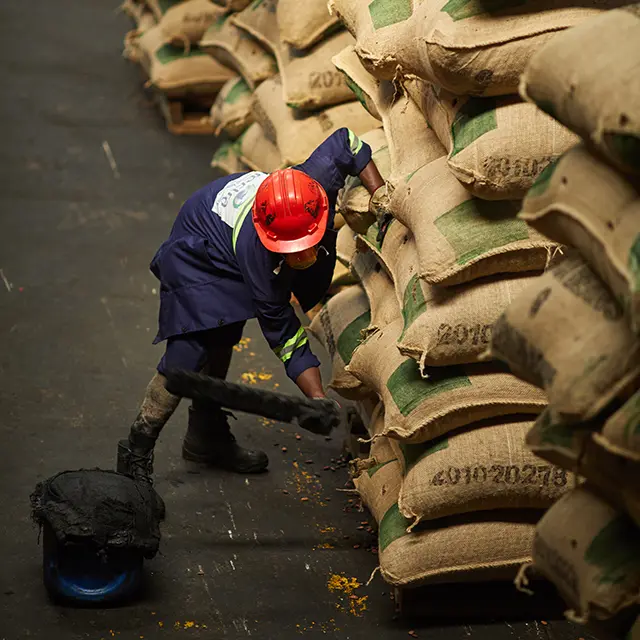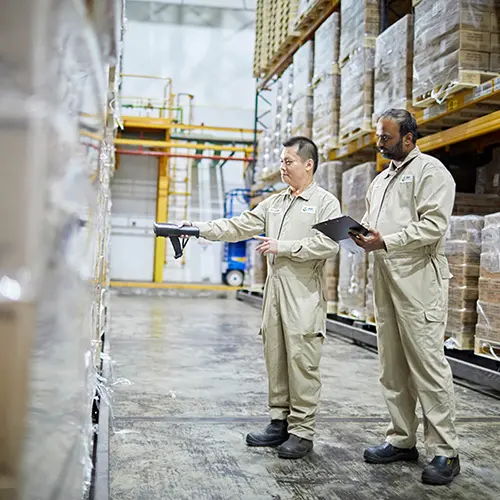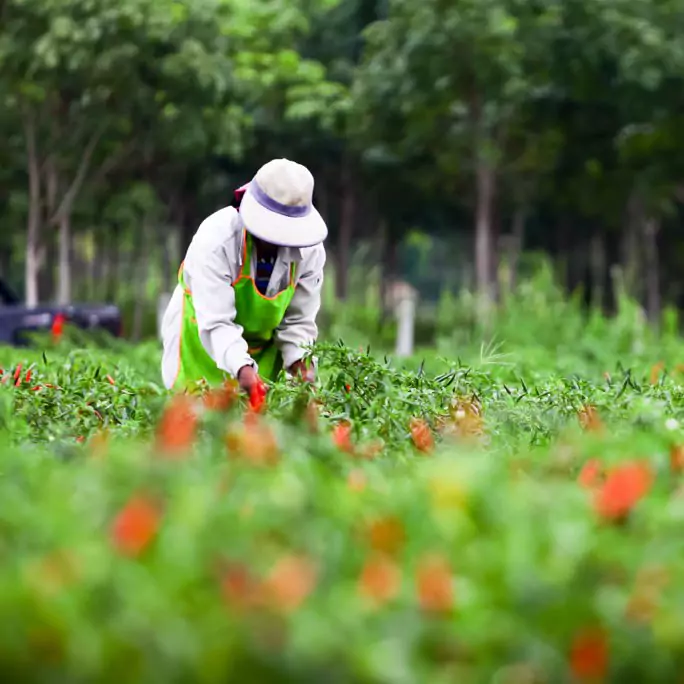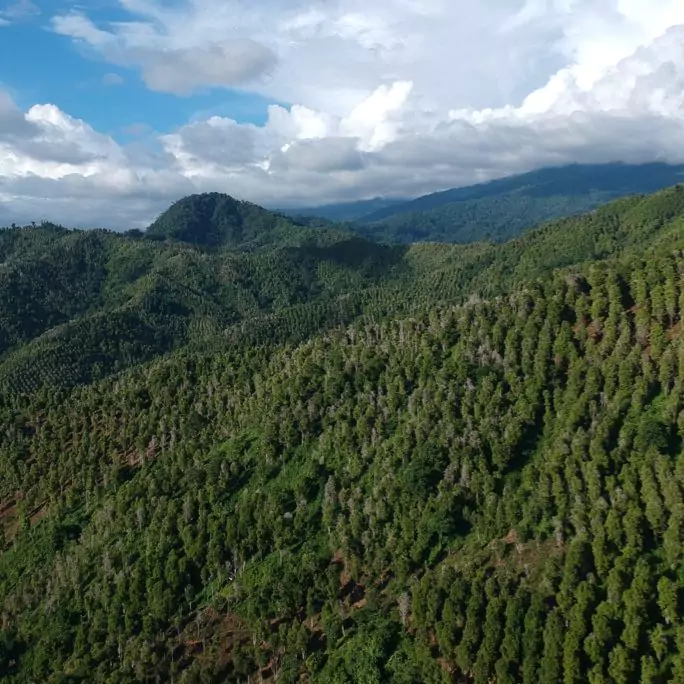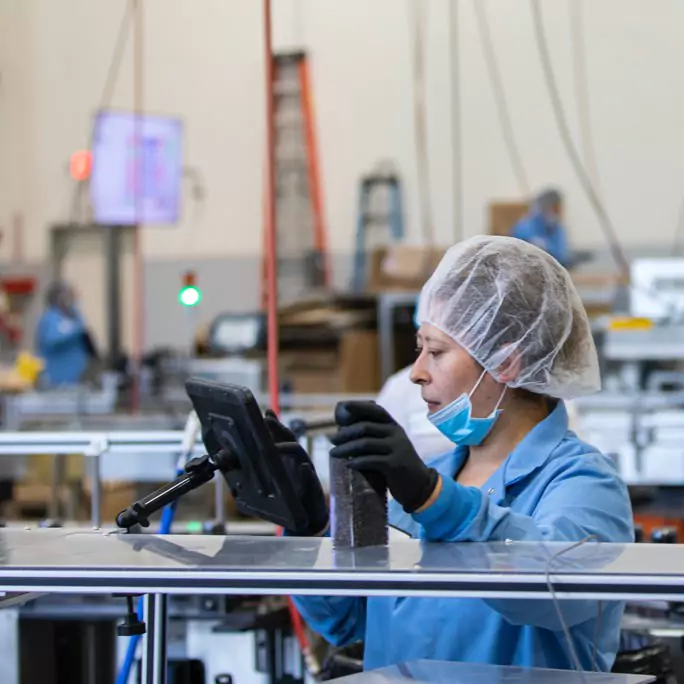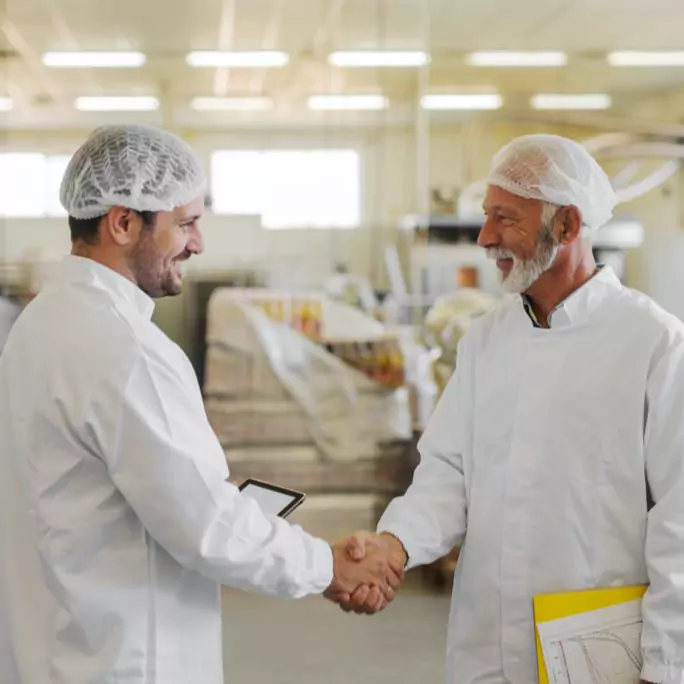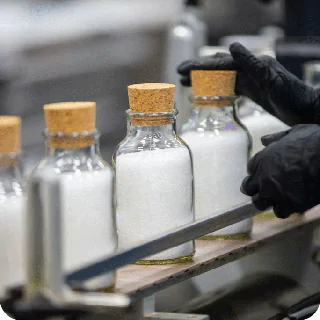Supply Chain Coverage
We help prevent disruption for retailers with supply chain control and enable them to appeal to eco-conscious consumers as we have the people and programs in place to offer traceability and sustainability.
In agriculture, you learn to expect the unexpected. Thanks to our global presence and diversified sourcing, we can always adapt so disruption to your supply is minimized.
Farming can be unpredictable. A harvest might be lower than anticipated. Prices can drop or climb dramatically due to over- or undersupply. But, thanks to being spread across the world and sourcing ingredients from multiple origins, at ofi we can manage these risks. Which means you get reliable supply.
Our diversified global presence also helps to insulate us from supply shocks that may disrupt the production of a particular crop in a particular location in any particular year. It allows us to offer certainty of supply and provide the requisite food safety and quality assurance to our customers through adaptive solutions.
This is supported by our team of risk experts who have deep understanding of agricultural commodities and financial instruments trading to help manage the price changes and volatility that can create a difficult operating environment for producers and supply chain participants. We focus on building long-term partnerships with our customers and offering tailored solutions.
Consumers increasingly want reassurance about where their ingredients come from. Thanks to ofi’s superior traceability, you can give them exactly that.
Providing traceability for agricultural raw materials can be challenging given the complex and fragmented nature of many ingredient supply chains, because many crops tend to be grown by small-scale farmers who sell to an intermediary, who may then sell on to another intermediary, mixing sacks from different sources along the way. With the aim of reducing complexity in our supply chains, we make every effort to work directly with farmers, organising buying stations and local cooperatives.
This way of working not only provides us with the data we need to trace our supply back to the farmer groups we work with, but also provides opportunities to create positive impact by implementing sustainability programmes with customer, government, not for profit and development finance institution partners. With traceability, we can also reduce social and environmental risks such as deforestation and human rights abuses.
We also work closely with large-scale growers such as in California for our onions and garlic. Here, we have long-standing relationships with multi-generational farmers passionate about their crops and stewardship of their land. We provide them with proprietary world-class seeds and our ag operations teams and crop supervisors help support production, harvesting and logistics. Of course, with our own farms and estates such as almonds, black pepper and dairy farms, we offer full traceability and absolute control.
Action includes:
Ensuring all suppliers sign the Supplier Code – which also applies to their suppliers
Training farmers through our sustainability programmes
Providing advice and guidance through our digital applications
ofi’s unique technologies play a vital role in improving traceability:
Olam Direct: the app that lets farmers do business directly with ofi
Olam Farmer Information System (OFIS): putting isolated smallholder farmers on the digital map.
AtSource: our sustainability insights platform which gives you more supply chain transparency than ever before
You expect consistent functionality of ingredients. That’s why we have our own people on the ground at every stage of the supply chain.
Getting better performance from food ingredients starts with the best seeds and seedlings. This is an ongoing mission for our plant scientists and agronomists in their support to farmers. One of our seeds, developed by the Spices team, produces onions with more dry matter—boosting yields and reducing the amount of water, fertiliser and pesticide needed per acre. A great example of the power of plant science.
In our smallholder farmer networks, our sustainability teams provide training on how to get the best quality crops with the lowest environmental impact. For example, with careful use of fertilisers and pesticides, replacing synthetic chemicals with natural alternatives wherever possible.
In addition, our own custom developed planting and harvesting equipment has shown significant reductions in our carbon footprint. We also provide training on how to protect crops post-harvest, providing equipment such as drying mats and tables which help prevent contamination from the soil.
This combination of superior seed, expertise and reduced inputs provides our farmers with well-managed crop risk and yield. All made possible thanks to our global reach and teams working together at every step of the supply chain.
Making sure our ingredients are delivered to customers without contamination or adulteration is our top priority.
We achieve this by:
Operating highly integrated supply chains working with both large-scale growers and smallholders
Providing training and quality seeds to help farmers reduce the risk of contamination
Maintaining the highest standards of quality and food safety control at our processing plants
Continuously investing in safety, health, quality and sustainability
Putting in place food quality and safety systems including GMP and HACCP
Read ofi news
By Andrew Brooks, Head of Cocoa Sustainability, olam food ingredients (ofi)
This week, the world’s attention turns to a heavy burden that can damage a child’s Health and Education: child labour. In ofi's cocoa business, we are focused on solving this problem every day.
Most child labour in cocoa relates to children carrying out hazardous tasks on the family farm, distinct from the much rarer issue of forced labour, and has no one cause. Labour laws can be misunderstood, and schools might be located far away. Even if there is a school nearby, children may not have the documents they need to enrol. When combined with rural poverty, many parents think their child’s time is best spent helping on the farm. And now, these cocoa-growing communities are also battling a global health pandemic.
We’re working to tackle each of these challenges in turn. Under our Cocoa Compass sustainability ambition, we aim to completely eradicate child labour from our direct supply chain by 2030 and ensure farmers’ children can access the education they are entitled to. In 2020, we reached the critical milestone of rolling out child labour monitoring across 183,000 households in nine countries.
There is still a lot to do, and collaboration with our customers, national governments, and civil society is essential. For example, we recently asked the Fair Labor Association (FLA) to assess the extent to which cocoa farmers and their families have benefited from our sustainability programmes in Côte d’Ivoire, their perception and satisfaction with these interventions, and help to refine our approach further.
Using a due diligence methodology called Social Impact Assessment, the FLA collected extensive data and interviewed over 450 people from ten cocoa communities, including women and children. It found that of all our efforts to tackle child labour, the setting up of child labour monitoring and remediation and enabling access to education are the most advanced and have the most significant impact.
It also revealed that over two-thirds of those interviewed think child labour is on the decline in their community, and 80% believe that the interventions by ofi and our partners are contributing to protecting children.
There are areas for improvement. The FLA suggested we provide additional support to help farmers access affordable labour. And ensure greater follow-up with Village Savings and Loans Associations to maximise their ability to promote child protection.
We know that combining our efforts through multi-stakeholder partnerships, championed by local and regional governments, and supported by international finance institutions, is the best way to create the kind of long-term systemic change needed to reach universal school attendance
and graduation for children in cocoa communities.
This World Day Against Child Labour reminds us that if we want to put children first in cocoa, we must be open to testing new approaches and adapting our efforts based on what works best. The future of a cocoa generation is at stake if we don’t.


